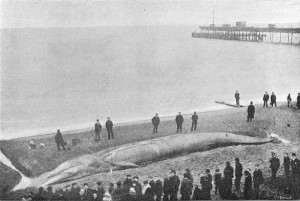
While many have been enjoying the last of the great British summer, the KEIT team have been working hard to ensure that BU’s research and knowledge is informed by society for the benefit of society on a number of cross institutional projects. Read on for a selection of our achievements this month:
Communicating BU’s research
Two exciting new digital features have been launched this month. The Research Photo of the Week exhibits winning photographs from the Research Photography Competition that we held earlier this year to showcase BU research. Our research spotlight feature has also just been launched in the form of a short video interview, featuring Dr Sally Reynolds whose work has recently been published in Scientific Reports.
Other research communication successes include Colin Pritchard’s research into dementia which was featured on the front page of the Times in August and has been well cited in the local and national press. Additionally, Jane Murphy and Joanne Holmes’ research into dementia and nutrition was reported in the Mirror and subsequently in the Coventry Telegraph and Evening Gazette.
Public Engagement
After the success of the Festival of Learning back in July, we’re already moving onto our next big event of the year, the ESRC Festival of Social Science. BU has supported events as part of the Festival for the past 3 years but this year, for the first time, we are officially a partner of the Festival and as such are producing many more events for the public, business and schools. Take a look at research.bournemouth.ac.uk/events for further details of activities taking place as part of the Festival, as well as for details of all our public facing activity.
Café Scientifique continues to be successful with September’s talk coming from Dr Robin Wilson from University of Southampton who discussed how we’re monitoring our environment from space and why we should care about it. Upcoming talks will feature Marine Archaeologist, Tom Cousins (October 6) and Vanora Hundley and Edwin Van Teijlingen who will explore Fear in Childbirth (November). If you’d like to be involved and have a great idea for a debate-centric talk we’d love to hear from you – just email Naomi.
The deadline for submitting your expression of interest to run a Festival of Learning event is also fast approaching so be sure to put your name and the concept of your event in online before 25 September.
Higher Education Initiative Fund (HEIF)
13 HEIF projects came to an end this summer, with some excellent outcomes including:
- The BFX festival is running for the third year after starting out as a HEIF funded project. Tickets are now available for the festival – check out the website for more information. Volunteers are also need for this event, so please email Tracey Ricketts if you are interested in helping out.
- An MSc Mobile app development course launched to start in 2016, in consultation with a number of stakeholders including local mobile app agencies.
- BUG continues to hit the headlines: Weed machines remove 30 tonnes from Poole Park lake – Bournemouth Echo. This year-long research project by Bournemouth University Global Environment Solutions (BUG) monitors water quality at Poole Park lake, to form part of the bid for Heritage Lottery Funding to improve Poole Park.
HEIF 5+1: The twelve new projects that secured funding in August 2015 and will run for the next 12 months are well underway. More information will be posted on the Research Blog as these evolve – so keep an eye out for updates. One of the first to go live is Building Roman Britain.
KEIT and Liam Toms within the Media & Communication Faculty are working together to co-ordinate a Creative Bournemouth event to be held at the EBC on 23 September. Professor Tim McIntyre-Bhatty will open the event and a number of speakers from the creative industries will present during the afternoon. This event will also launcha special feature on creative industires in Bournemouth published by The Drum .
Knowledge Transfer Partnerships (KTP)
We currently have five live KTP within SciTech and KTP activity at BU is on the increase with KTP leads associated with every Faculty. This is a fantastic result and we are keen to further promote the specific KTP Cyber Security call and Stratified Medicine call, both of which are due to close in early 2016.
If you’re feeling inspired by our blog post and would like to get involved with some of our projects then feel free to get in touch:
Genna West – Knowledge Exchange and Impact Manager
Rachel Bowen – Research Communications Manager
Rachel Clarke – Knowledge Exchange Adviser (KTP)
Jayne Codling – Knowledge Exchange Adviser
Naomi Kay – Public Engagement Officer
Katie Breadmore – Public Engagement Event’s Organiser
Oliver Cooke – Student Engagement Coordinator
To find out more about us and what we do, take a look at our team page.

 Then we want to hear from you! 🙂
Then we want to hear from you! 🙂


 Following the announcement by the Vice Chancellor in August 2011 that CRE would move from Finance & Commercial Services I am delighted today to formally launch the Research & Knowledge Exchange Office (R&KEO) with the remit of supporting all research and knowledge exchange (formally enterprise) activity at BU.
Following the announcement by the Vice Chancellor in August 2011 that CRE would move from Finance & Commercial Services I am delighted today to formally launch the Research & Knowledge Exchange Office (R&KEO) with the remit of supporting all research and knowledge exchange (formally enterprise) activity at BU. I am delighted to share with you the news that BU’s
I am delighted to share with you the news that BU’s 











 SPROUT: From Sustainable Research to Sustainable Research Lives
SPROUT: From Sustainable Research to Sustainable Research Lives BRIAN upgrade and new look
BRIAN upgrade and new look Seeing the fruits of your labour in Bangladesh
Seeing the fruits of your labour in Bangladesh Exploring Embodied Research: Body Map Storytelling Workshop & Research Seminar
Exploring Embodied Research: Body Map Storytelling Workshop & Research Seminar Marking a Milestone: The Swash Channel Wreck Book Launch
Marking a Milestone: The Swash Channel Wreck Book Launch ECR Funding Open Call: Research Culture & Community Grant – Application Deadline Friday 12 December
ECR Funding Open Call: Research Culture & Community Grant – Application Deadline Friday 12 December MSCA Postdoctoral Fellowships 2025 Call
MSCA Postdoctoral Fellowships 2025 Call ERC Advanced Grant 2025 Webinar
ERC Advanced Grant 2025 Webinar Update on UKRO services
Update on UKRO services European research project exploring use of ‘virtual twins’ to better manage metabolic associated fatty liver disease
European research project exploring use of ‘virtual twins’ to better manage metabolic associated fatty liver disease